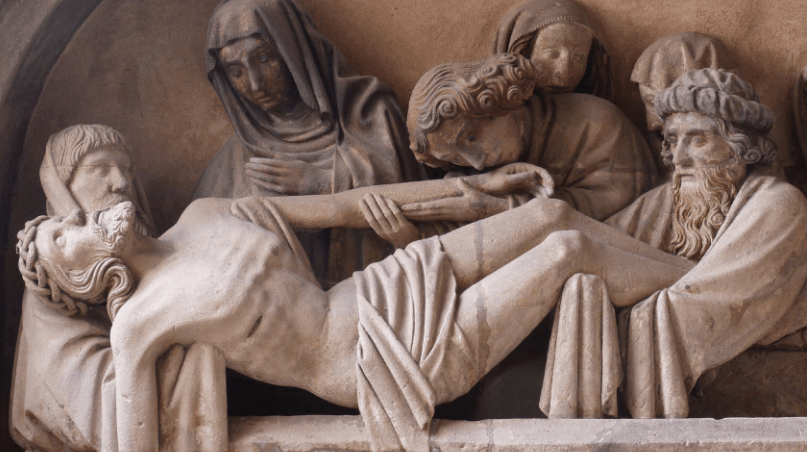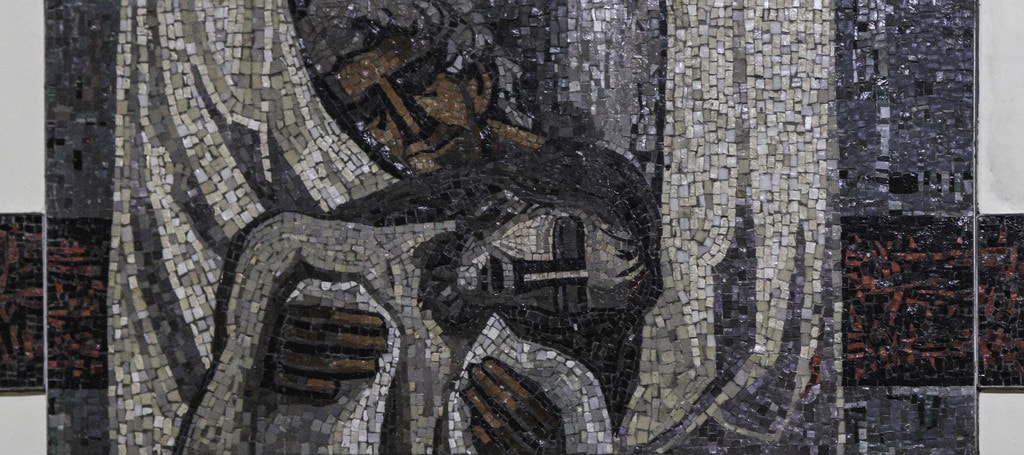Peter’s denial of Jesus is not a mystery, I suppose, to most of us. It is certainly a tragedy; in a moment of uncertainty and darkness, he denied knowing the man he had followed for three years as teacher and eventually as God. It’s a tragedy I understand. I often find, in the face of a question I’m unprepared for, that I become a shrinking, stammering version of myself. Even as an adult, a well educated professional, I fall into obsessive self-censoring of emails and even texts to friends, hoping to manage to the very last smiley what the person on the receiving end will think of me.
This obsession with image management has a name, and fits into a larger bucket of human messiness often called “the fear of man”. It seems so obvious when we say it about Peter, doesn’t it? For whatever reason, he was afraid to be associated with Jesus. It didn’t matter to him that the person he spoke to was a servant girl, or that hours before he was proclaiming his devotion to Jesus. He was afraid, so afraid he said, “I don’t know him”.
A quick aside for some definitions, as this phrase is an older one. “Fearing” can mean being afraid of in the sense we are used to, but it can also mean trying to please someone for the same reason. “Man” or “men” would refer to any member of humanity, as opposed to God.
It’s a little trickier when we start looking at similar symptoms of the same problem in our own lives, though. A little email editing, a perfect smiley in a text or on a post never hurt anyone. In fact, if you spend any time on the internet, you know that far too many people could stand more self-censoring.
We could all be more thoughtful – but the why matters.
You see, there is a great deal of difference between checking my words to make sure they are loving, wise, or kind, and checking them to make sure my friend will consider me to be loving, wise, or kind. This becomes even more problematic when we get into qualities neither particularly encouraged by scripture, nor intrinsically valuable, like intelligence or humour. The motivations of our heart get murky pretty quick when we are worried about our reputation. And that is the trap and true problem with fearing men. We take a few steps towards that fear and suddenly we are doing good things for bad reasons and before long we’re not sure which things are good anymore at all.
The motivations of our heart get murky pretty quick when we are worried about our reputation. And that is the trap and true problem with fearing men.
This struggle is one of mine, and I sympathize much with poor Peter. After all, he has no idea what’s going to happen to Jesus or his known associates – but we’ve all seen enough crime dramas now to know that even the phrase “known associates” is pretty bad news. Yet for all my sympathy, I know that Peter had, as I always have, another choice. The only antidote to fearing man is to fear God.
Fearing God is another older phrase, from when “God-fearing” was a reasonably common compliment. But consider what I said about fearing men. It can mean literally fearing, as in being afraid of, as Peter was. It can equally mean “wanting to please” or “expecting judgment or praise from”. When the prophets in scripture condemn a nation because “there is no fear of God” in them, we could reasonably translate for our modern ears “there is no regard for God” or “there is no awe of Him.” Holding all those meanings in our minds makes it much more natural and far more hopeful to fear God.
Fearing God has been my only freedom from the crippling weight of other’s opinions in person, at work, and online. The only one I want to please is God (well, at some moments. This is a struggle!). The only one who gets the final weigh in on my fashion choices, my comma use, my kindness or wisdom, is God. This gives me the choice to say “No” to people and the willingness to look foolish. It even makes it easier to admit when I’ve been wrong – in sin or in grammar.
Let’s return to the most obvious meaning of fear, though, since it speaks to Peter’s situation. Unlike many places in our world, you will likely not find your life at stake for acknowledging Jesus. The risk of martyrdom is a real and present danger for many of our brothers and sisters. However, when we find our relationships or livelihood threatened based on words we could say, know that God is still much, much scarier than whoever you face. In the language of cartoon vegetables, “God is bigger than the boogeyman.” And he is. It’s because he is so much bigger that we can ask with the psalmist, “I will not fear, what can man do to me?” When we fear God, we are in awe of his holiness, might, and righteousness. When we are seeking to please him, we finally have both way and reason to reject our lesser fears.
Stations
During the weeks of Lent, St. Peter’s writers are reflecting on the Stations of the Cross. These fourteen moments from the last days of Jesus’ life offer us an opportunity to consider where we would have been in this story – in the crowd? Waiting in the courtyard? At the foot of the Cross? It’s our prayer that you will find these posts meaningful food for thought over the next few weeks.




